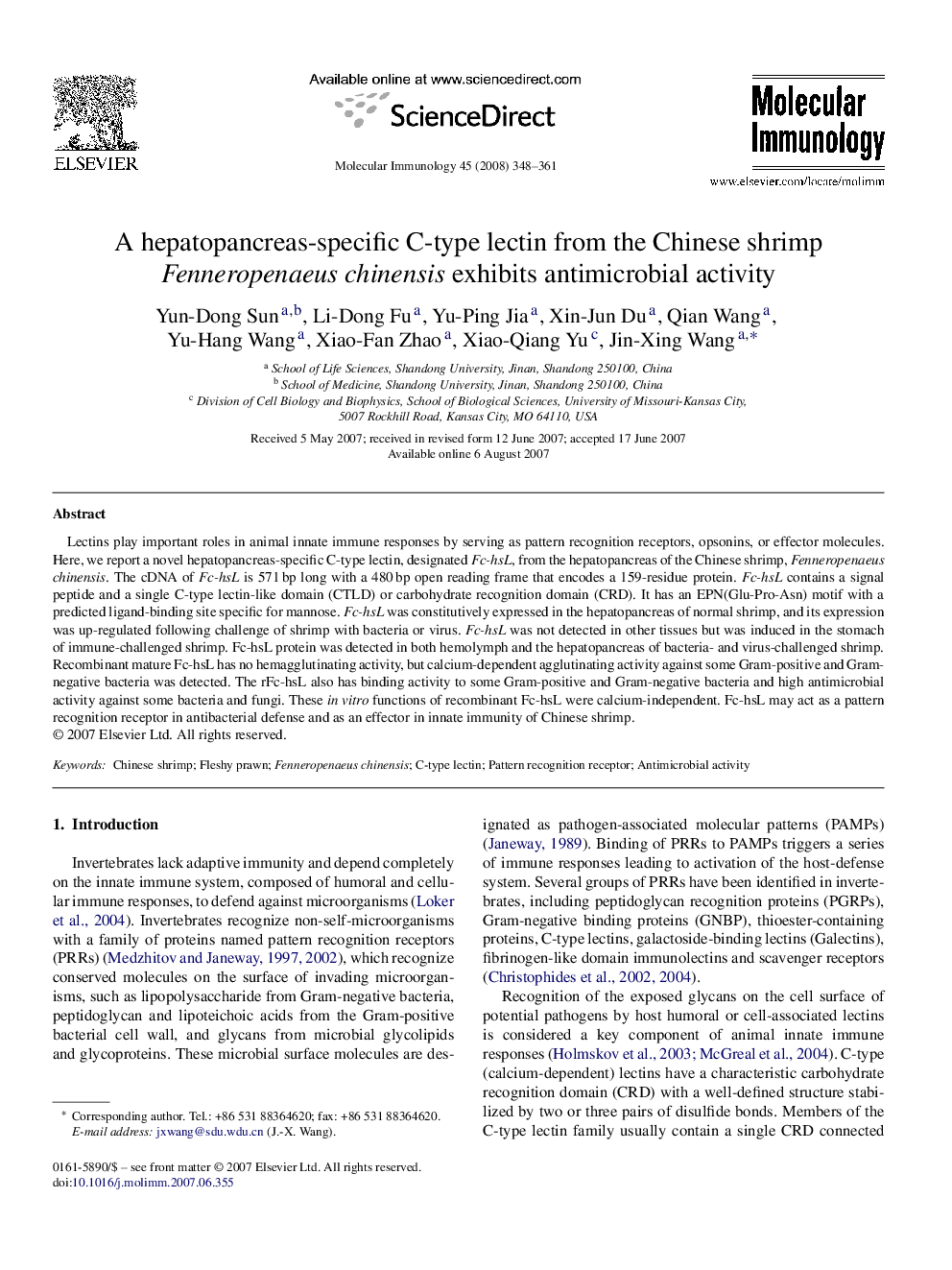| Article ID | Journal | Published Year | Pages | File Type |
|---|---|---|---|---|
| 5918055 | Molecular Immunology | 2008 | 14 Pages |
Lectins play important roles in animal innate immune responses by serving as pattern recognition receptors, opsonins, or effector molecules. Here, we report a novel hepatopancreas-specific C-type lectin, designated Fc-hsL, from the hepatopancreas of the Chinese shrimp, Fenneropenaeus chinensis. The cDNA of Fc-hsL is 571Â bp long with a 480Â bp open reading frame that encodes a 159-residue protein. Fc-hsL contains a signal peptide and a single C-type lectin-like domain (CTLD) or carbohydrate recognition domain (CRD). It has an EPN(Glu-Pro-Asn) motif with a predicted ligand-binding site specific for mannose. Fc-hsL was constitutively expressed in the hepatopancreas of normal shrimp, and its expression was up-regulated following challenge of shrimp with bacteria or virus. Fc-hsL was not detected in other tissues but was induced in the stomach of immune-challenged shrimp. Fc-hsL protein was detected in both hemolymph and the hepatopancreas of bacteria- and virus-challenged shrimp. Recombinant mature Fc-hsL has no hemagglutinating activity, but calcium-dependent agglutinating activity against some Gram-positive and Gram-negative bacteria was detected. The rFc-hsL also has binding activity to some Gram-positive and Gram-negative bacteria and high antimicrobial activity against some bacteria and fungi. These in vitro functions of recombinant Fc-hsL were calcium-independent. Fc-hsL may act as a pattern recognition receptor in antibacterial defense and as an effector in innate immunity of Chinese shrimp.
